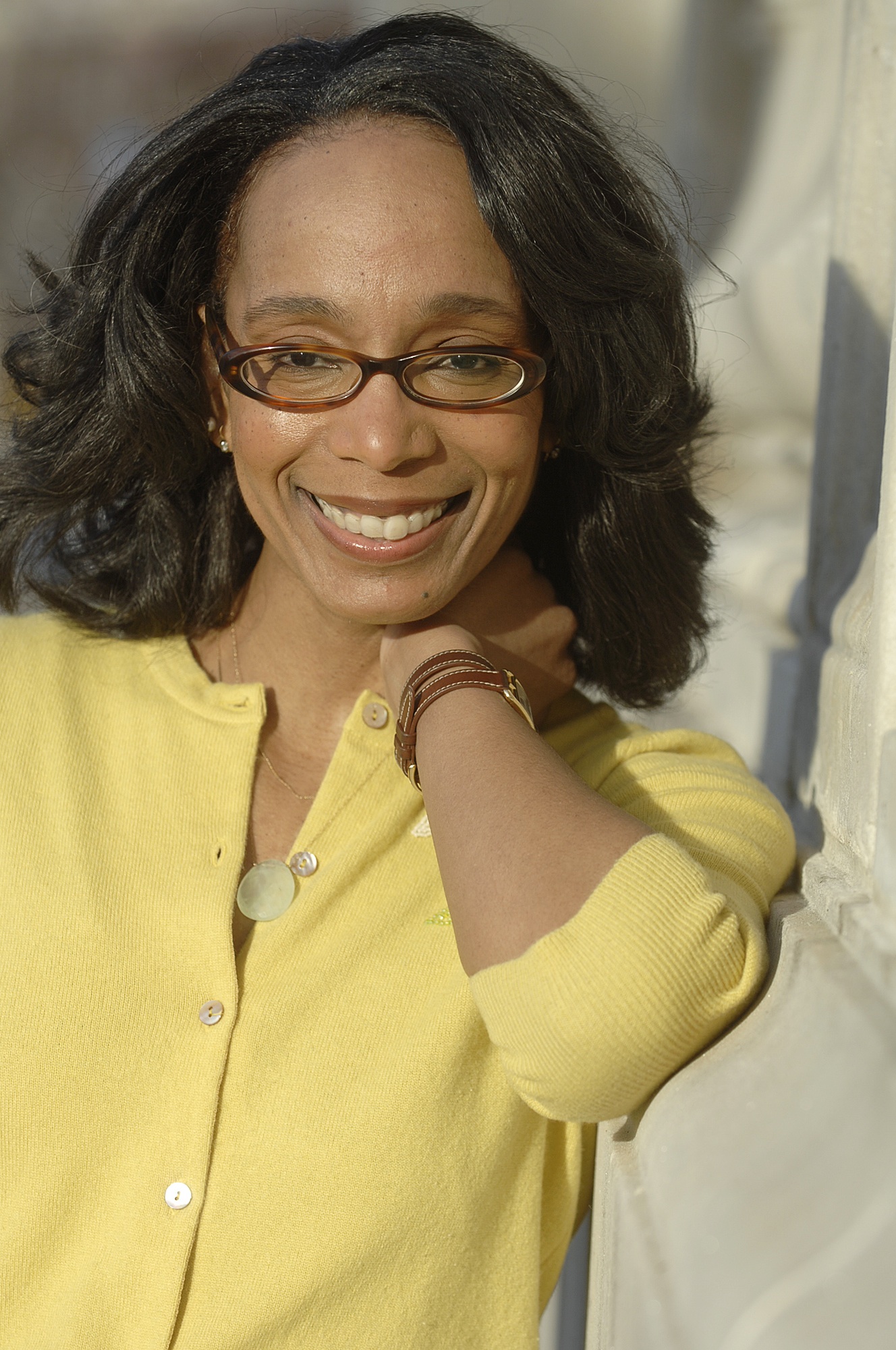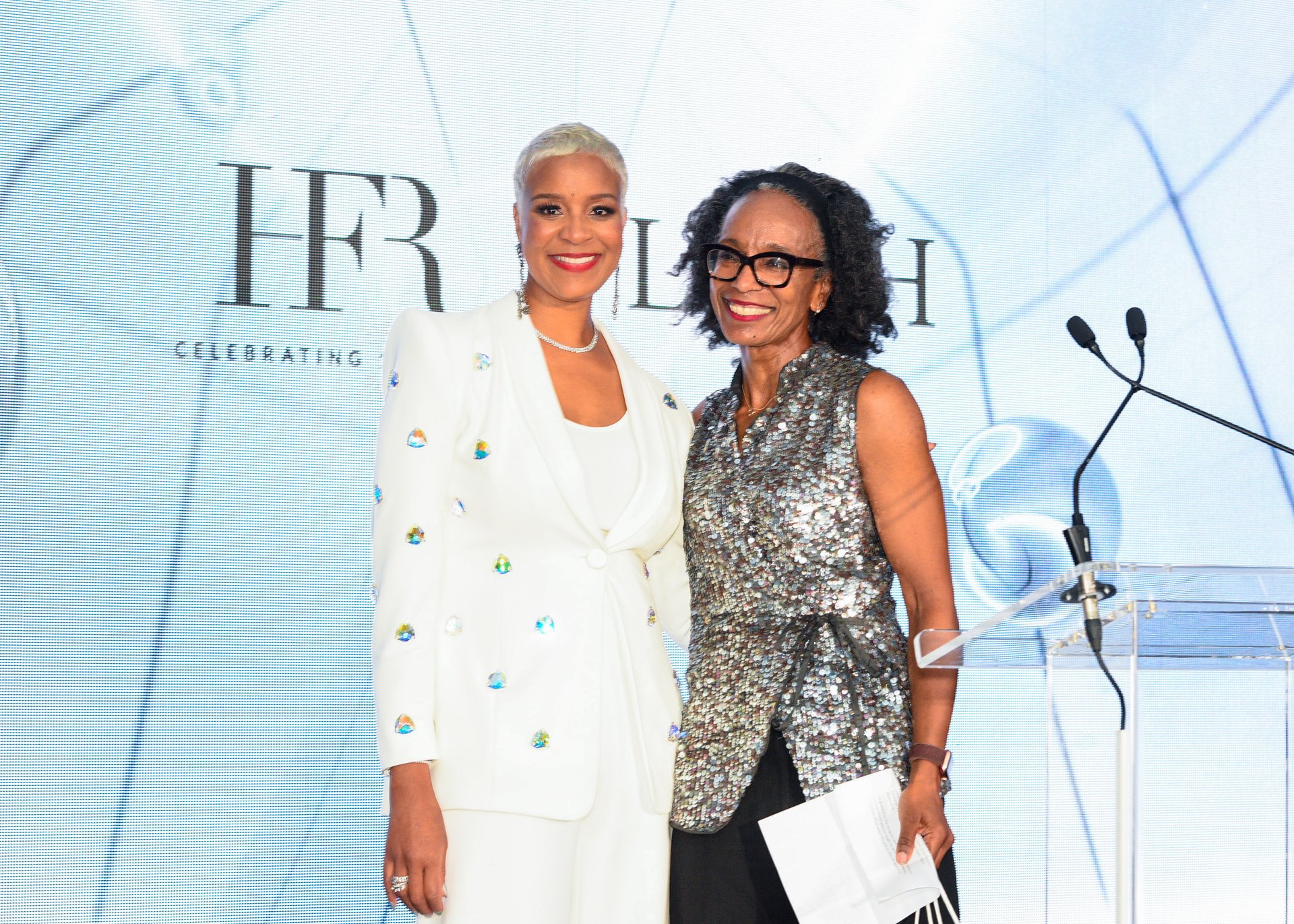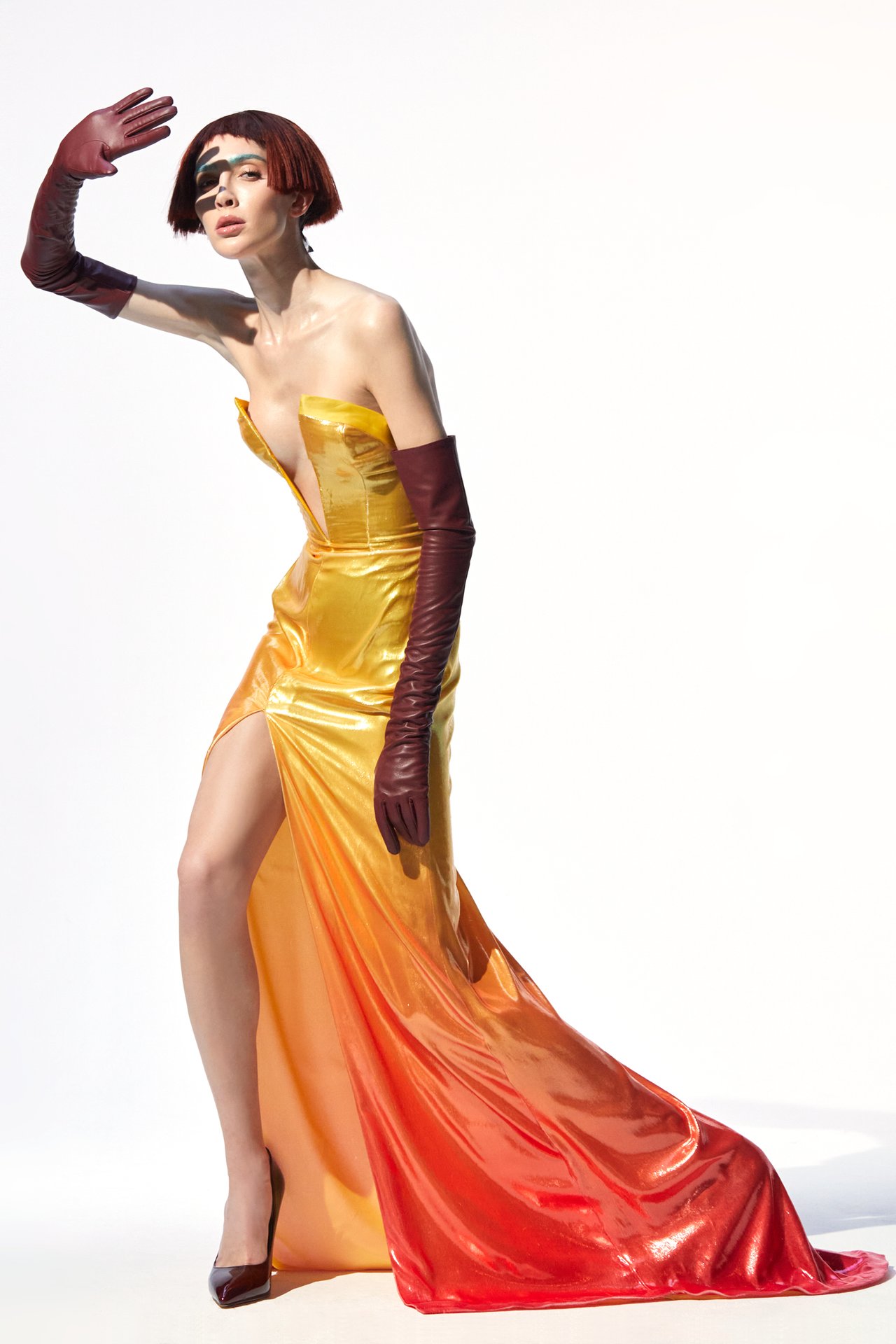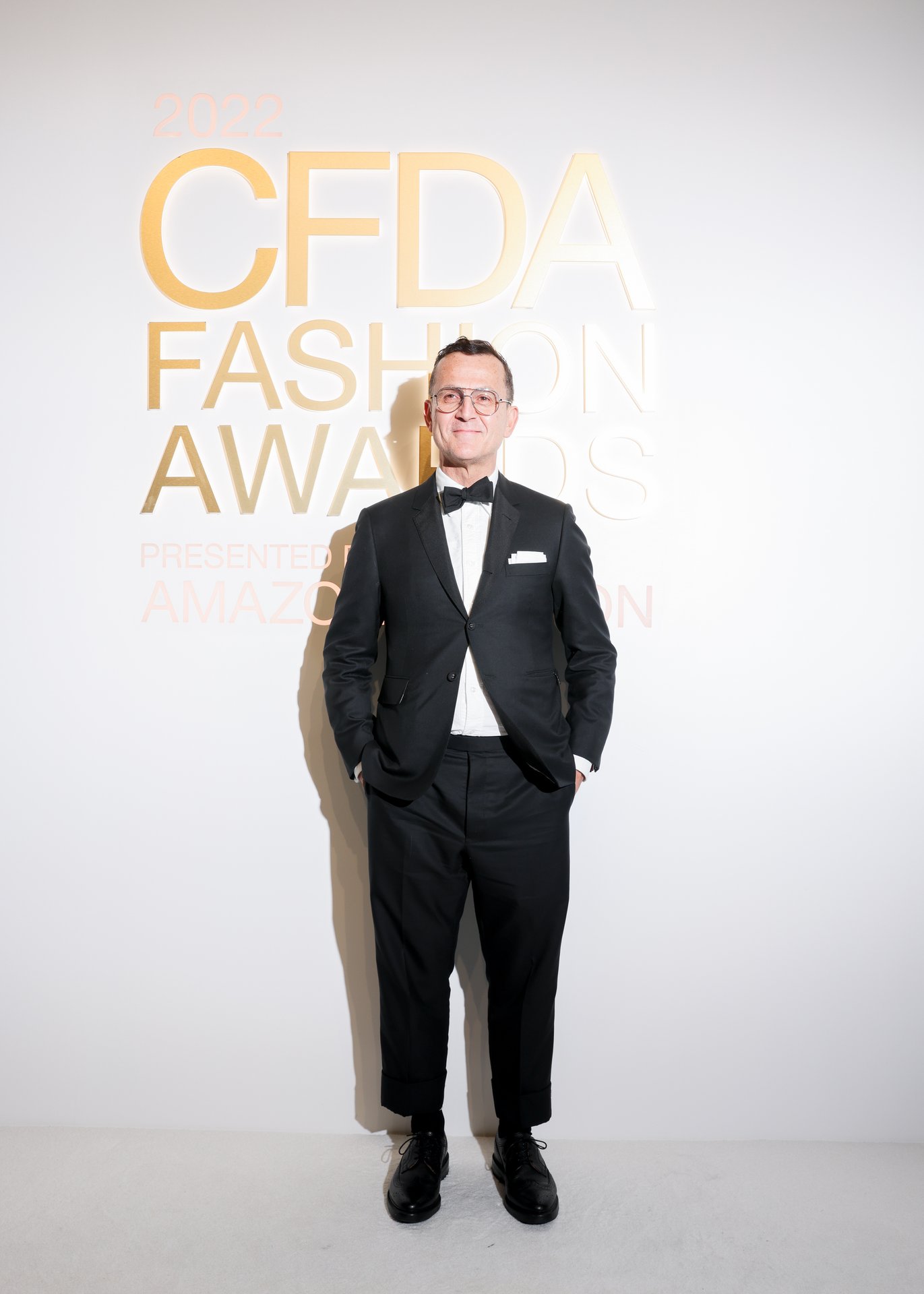Career Conversations: Robin Givhan, The Washington Post’s Unvarnished Senior Critic
December 22, 2022
Rashad Benton



Robin Givhan; Photo by Helayne Seidman.
Detroit native, mini-triathlon relay runner, author of “The Battle of Versailles: The Night American Fashion Stumbled Into The Spotlight And Made History,” and 2006 Pulitzer Prize Recipient, Robin Givhan is Senior Critic-at-Large at The Washington Post, where she writes about politics, race, and the arts.
Before life as a writer, Givhan thought studying biology would lead her to a medical career as a surgeon. Instead, after Princeton and a Master’s from the University of Michigan, Givhan worked as a reporter for the Detroit Free Press for seven years. Shortly after that, she headed to the west coast and worked at the San Francisco Chronicle followed by a stint at American Vogue.
It’s been 27 years since the “unapologetic” fashion editor and critic – who has a rule that she doesn’t review showroom collections or shows from a video – started her relationship with the Post. She states, “I review the live show.” Back in Washington, D.C., after spending a decade-plus in New York City, she admits to a bit of wandering while she routinely works on several stories at once. In her weekly column, Robin, the recipient of the Editor of the Year award at the Harlem’s Fashion Row x LVMH Fashion Show and Style Awards in September, can go from discussing the January 6th, 2021 insurrection to British designer Grace Wales Bonner to a critique on Why We Can’t Quit Kanye West.
You have a Bachelor’s in English from Princeton and a Master’s in Journalism from the University of Michigan. What in life pre-college prompted you to focus on becoming a wordsmith?
I’ve always enjoyed writing and was an avid reader as a child, especially in kindergarten and high school. I was one of the few students who hoped that our test would have an essay question. Despite being a member of my high school’s newspaper, I came into journalism surprisingly slowly.
I wandered away from the school paper while in undergrad, yet took a couple of creative writing classes. Because I didn’t like it, college chemistry also forced me to reevaluate my career path. One of my favorite classes was English. My mother also suggested that I consider grad school journalism.
I have recognized an expanding shift in the topics you cover but I want to focus on fashion first. How did you become a fashion critic and what does that trajectory look like?
My first job after college was in the entertainment section of the Detroit Free Press, my hometown’s newspaper. I wanted to work as a generalist in a features department. I quickly realized that this was not the newspaper’s lifestyle feature section; all the critics sat there. In a department with pop music, theater, and classical critics, I was the sole generalist feature writer. I didn’t have a particular beat. This meant that if I had a story about music, film, or anything else, I had to check with the appropriate person.
I made a move to cover nightlife because no other person truly was and because I was going out with my friends. Detroit’s Techno scene was starting to flourish around this time. As a result, I started chatting with some club DJs and pitching stories about them and the techno genre, which was popular in Europe but still underground in Detroit. It gradually evolved into my first mini-beat and the first subject on which I became an expert on.
If I had to describe the trajectory, I would say that “it’s an evolution” from reporting on a beat to being able to critique it once you have sufficient context, understanding, and knowledge of said beat. I had no prior knowledge when I started covering fashion and attended my first fashion week in Europe. My editor told me, “Don’t review; just report,” and that’s what I did. I started writing about it because the editor was moving on to something else at the time. Additionally, I wanted a full-time beat and fashion was it.
According to Google, you have earned herself a reputation as an unapologetic critic of the industry. What are your feelings toward that?
Google, thank you. I’m not even entirely sure what the word unapologetic means. Who should I apologize to as a journalist for covering an industry with as much truth and fairness as possible? Unapologetic implies that someone is deserving of an apology, and I don’t know who that would be. Because I can’t do what designers and stylists do, I work very hard to ensure that my criticisms aren’t common attacks and to keep in mind that there is a human behind the collection who put their heart and soul into it.
What was the first show, event, or designer you ever wrote about? How do you feel about it now?
Rashad, I have no idea. The first time I went to a fashion show, I wasn’t a fashion editor. I was permitted to write about menswear part-time for the Detroit Free Press. I was basically filling in for the new editor they had hired out of Dallas. She was unable to begin in time to attend the European shows. I was given a list of people I should cover, pass on, and try to reach if I could. I wasn’t a fashion kid growing up; I knew of Chanel and Saint Laurent; that’s about it. It’s a complete blur of me in Europe trying to get into shows, following directions, and getting shell-shocked. I also cried while I was over there.
Have you ever looked back on a review and regretted writing it or wished it had been different somehow?
I wrote a piece about Serena Williams’ style over the years, how she related to the fashion industry, and how she made the industry come to her on her terms when she retired or “evolved.” When I wrote that, I thought about how harsh the industry had treated her in the beginning and how she had to dress. I was critical of aspects of her style that weren’t great. In hindsight, the way I presented it could’ve been handled better.
Have you ever worried that your words would get you blacklisted?
They have! And it feels like petty and immature behavior. This is a business; it isn’t personal. I’m not writing about your grandmother. I’m writing about the collection that you showed on the runway and plan to sell to customers. The idea that you’re going to stomp your feet and have a hissy fit instead of having a conversation seems silly. Now things can get uncomfortable if, for example, someone like Armani gets upset and refuses to advertise because he or the brand is upset about something that was written.

Robin Givhan, pictured with Brandice Daniel, at the Harlem’s Fashion Row x LVMH Style Awards in September; Photo by Deonté Lee/BFA.com.
Do you see your job as a dying profession? Everyday we’re told people don’t read anymore, so how does one become a critic in the year 2023?
The concept of a newspaper critic working full-time and writing such immediate reviews…I am uncertain of how long this will last because only a couple American newspapers are able to maintain that. What’s more concerning to me is that the preparation and training ground for journalistically driven critiques is being lost. I find that bad.
In 2006, you became the first fashion writer to receive the Pulitzer Prize for Criticism. What did that feel like?
Everything you imagine it would be like. To win was amazing, wonderful, and shocking. Since no one writing about fashion had ever won before, it was quite extraordinary. I’ve said it before, but the nicest thing that happened was that a lot of women and some men said that my winning that award elevated the work they were doing in their newsrooms. Their coworkers were forced to reconsider how the fashion industry was covered. This came from people who supported me and had been fashion writers and journalists before I started.
Did winning the Pulitzer Prize raise your profile?
It did. I was working out of our New York office, and I can’t recall another time in my life where I received so many bouquets of flowers. I went on several expensive lunches with colleagues and acquaintances. The following year I received my CFDA award, so it was quite a boost in things. It came with a few more coveted front-row seats too.
Can I get your take on fashion and how it’s changed in the last decade?
It has become more difficult for independent designers to grow their brands independently as the industry has become more corporate. The CFDA/Vogue Fashion Fund and LVMH Prize have helped new designers get started, giving them a better foundation when they start out. From that point on, I feel it’s harder to move up from a small designer to a bigger one without attaching your wagon to a bigger company.
I’m not sure what the quantifiable reward is for the industry’s growing attachment to celebrities and influencers. It significantly raises the profile, but what does that mean for the bottom line? Because so much about fashion brands is based on their reputation and presence in the culture, it also deals with the devil, and I mean that in both directions.
What about the last two years specifically?
Since COVID entered our lives, there has been an upsurge in “coming to Jesus” talks. We kept hearing about slowing down and less product. As soon as people could get back on a plane, they did. Brands held live shows as soon as it was permitted, so it turned out to be nothing more than blah blah. I think the social justice protest forced people to deal with diversity and inclusivity in some way. I see it happening successfully and sincerely in various degrees because there was a recognition that it must be dealt with.
In September 2020, you were promoted to Senior Critic-at-Large at The Washington Post. Can you talk about how this promotion has changed your beat?
I can now cover a wider range of topics without worrying about whether they will fit in my box. I hesitate to use the term “box” because I wasn’t really in one before, but I don’t have to try to tie fashion to anything. I can now write about politics or race because I’m part of the National staff. However, because the arts also fall under my umbrella, I can still write about fashion-related topics that pique my interest. Most of the time, these stories come together at the intersection of politics, fashion, and racial issues, which overlap so much more now in overt ways than in the past. It gives me more freedom to choose what interests me at any given time and prevents me from being held hostage by a calendar.
What does the “Senior” part of your title lend itself to? What is the difference between a critic and a senior critic?
It’s a way of echoing the amount of experience I have in the world of criticism. It’s also a way of reflecting on my independence in setting my own agenda. The at-large part means I get to roam and be a free-range critic.
As one of the few remaining critics, what would you say differentiates your style of criticism from the others?
That’s hard for me to answer. I can say that when I think about criticism, I think about it from the point of view of someone who isn’t part of the fashion choir. I set out to talk to those who are thoughtful and curious but may not be steeped in fashion history and current fashion knowledge. I try to ensure individuals understand how fashion connects to other parts of the culture. Writing about it for the Post means politics is always part of that, so thinking about it in terms of how folks try to express themselves in a public space.
The internet has birthed social media fashion commentators. What are your thoughts on the self-titled critics who talk about fashion but don’t know the brand history and/or are not a part of the industry?
I haven’t actually seen them yet. However, I am aware of what you are referring to, and I am a firm believer that everyone should be able to express their opinions regarding a collection. However, we must exercise caution when characterizing them. I’m unsure of what a citizen journalist is. There are citizens as well as journalists. While journalists are citizens and some citizens are journalists, we must understand where people are coming from. People need to be thoughtful in their critiques because context is so important.
Last one, are you the sole Black Fashion Critic? Have others existed in the same regard as you in a professional sense?
There was a point back in the days of lucrative regional newspapers when there were quite a few Black writers covering fashion. There was one at the Chicago Tribune and one at the Chicago Sun-Times. The Atlanta Journal-Constitution had a Black writer covering fashion. I’m leaving people out, but when I started, there were a number of Black women and a few guys writing about fashion. Sadly, with the closure and shrinkage of those papers, they no longer have fashion writers. It’s unfortunate because it was a pipeline for training people to cover fashion. These were substantial institutions of journalism whose writers covered the fashion industry in accordance with journalistic standards. Because you don’t have that anymore, it’s much harder to get through. People who come from digital publications now have to get through magazines, which is harder.

